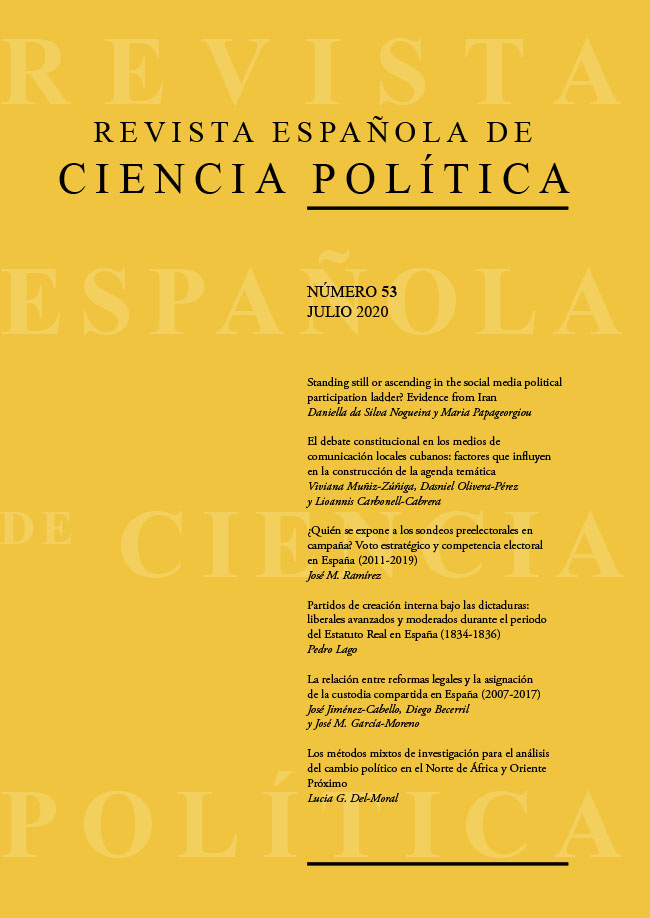Parties of internal creation under dictatorships: Advanced and moderate liberals during the period of the Royal Statute in Spain (1834-1836)
DOI:
https://doi.org/10.21308/recp.53.04Keywords:
long-lasting coalition, distributive conflict, multidimensional space, strategic votingAbstract
According to the current research on parties in dictatorships, the origin of parties is the result of the action by autocrats and individuals excluded from parliamentary representation. The hypothesis that parties are created in elected chambers through legislative coalitions has not been examined. However, the incentives and information predicted by the long-lasting coalition model can also occur in these chambers. That implies that parliaments can become a multidimensional space with distributive conflicts where sophisticated voting takes place. In order to test this hypothesis, this article analyzes the coalitions of advanced and moderate liberals within the Estamento de Procuradores during the regime of the Royal Statute (1834-1836). The results clearly show that the procuradores turned that elected chamber into a multidimensional space where distributive conflicts arose, and strategic voting was used. Nominal votes recorded in the Diario de Sesiones de Cortes del Estatuto Real. Estamento de Procuradores (1834-35, 1835-36 and 1836 terms) are the main source of information.
Downloads
Downloads
Published
How to Cite
Issue
Section
License
Copyright (c) 2020 pedro lago peñas

This work is licensed under a Creative Commons Attribution-NonCommercial-NoDerivatives 4.0 International License.






